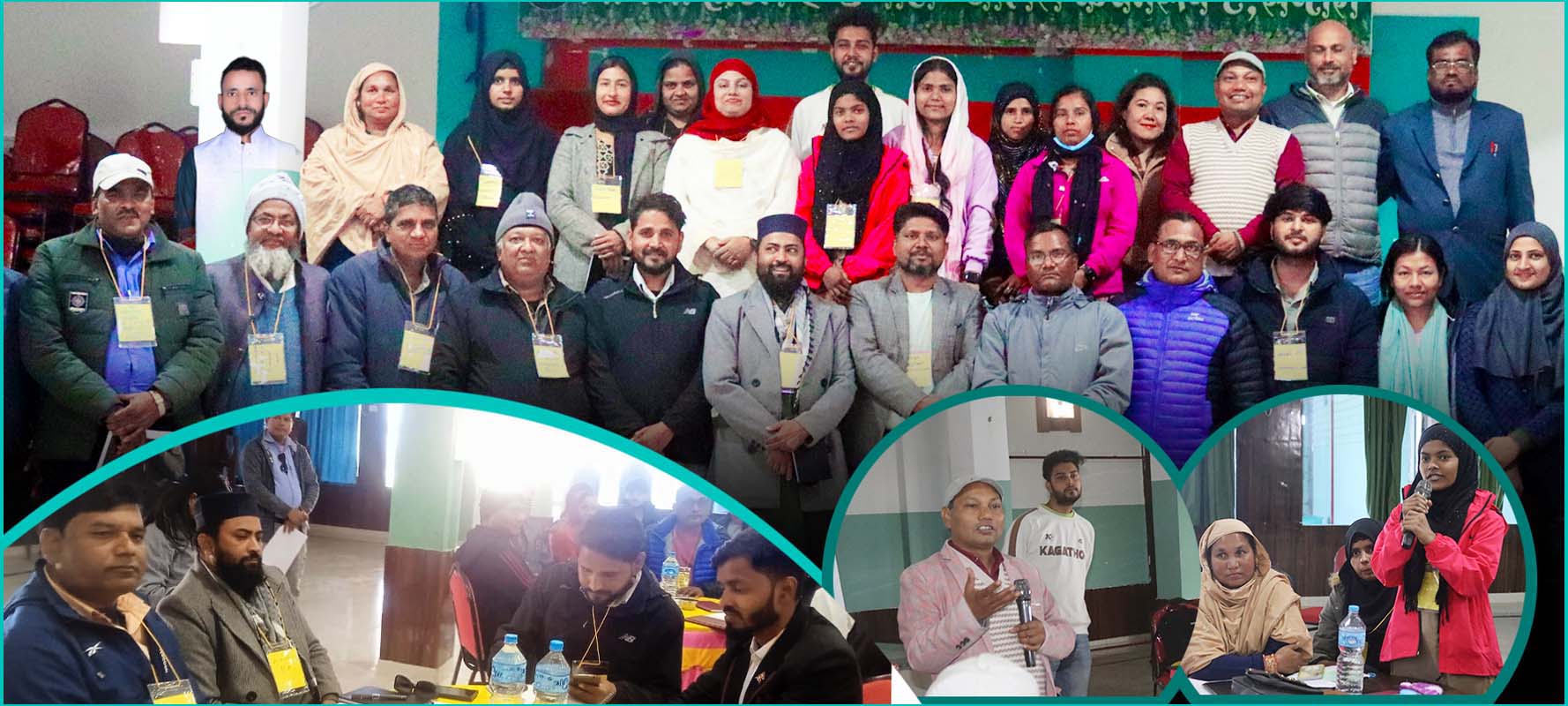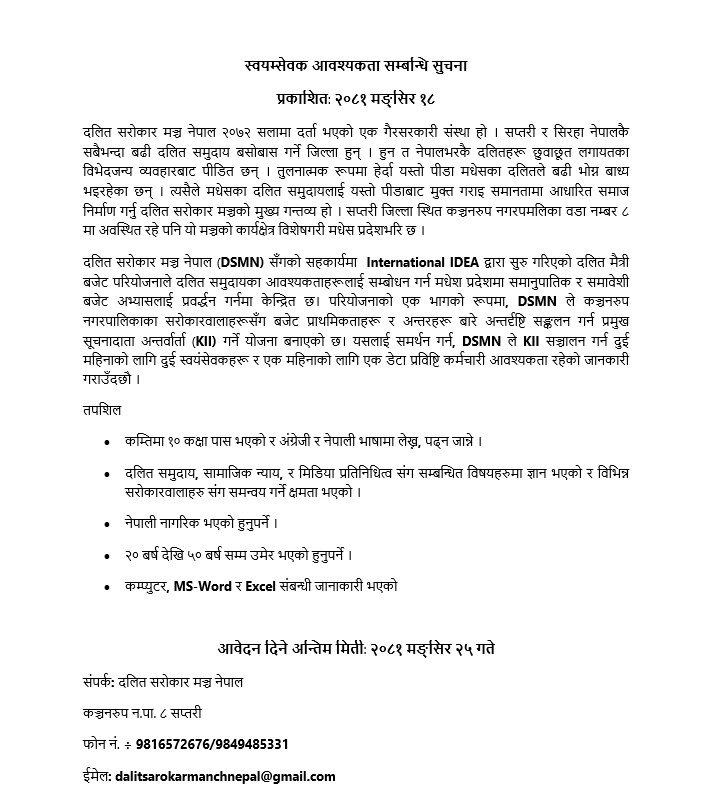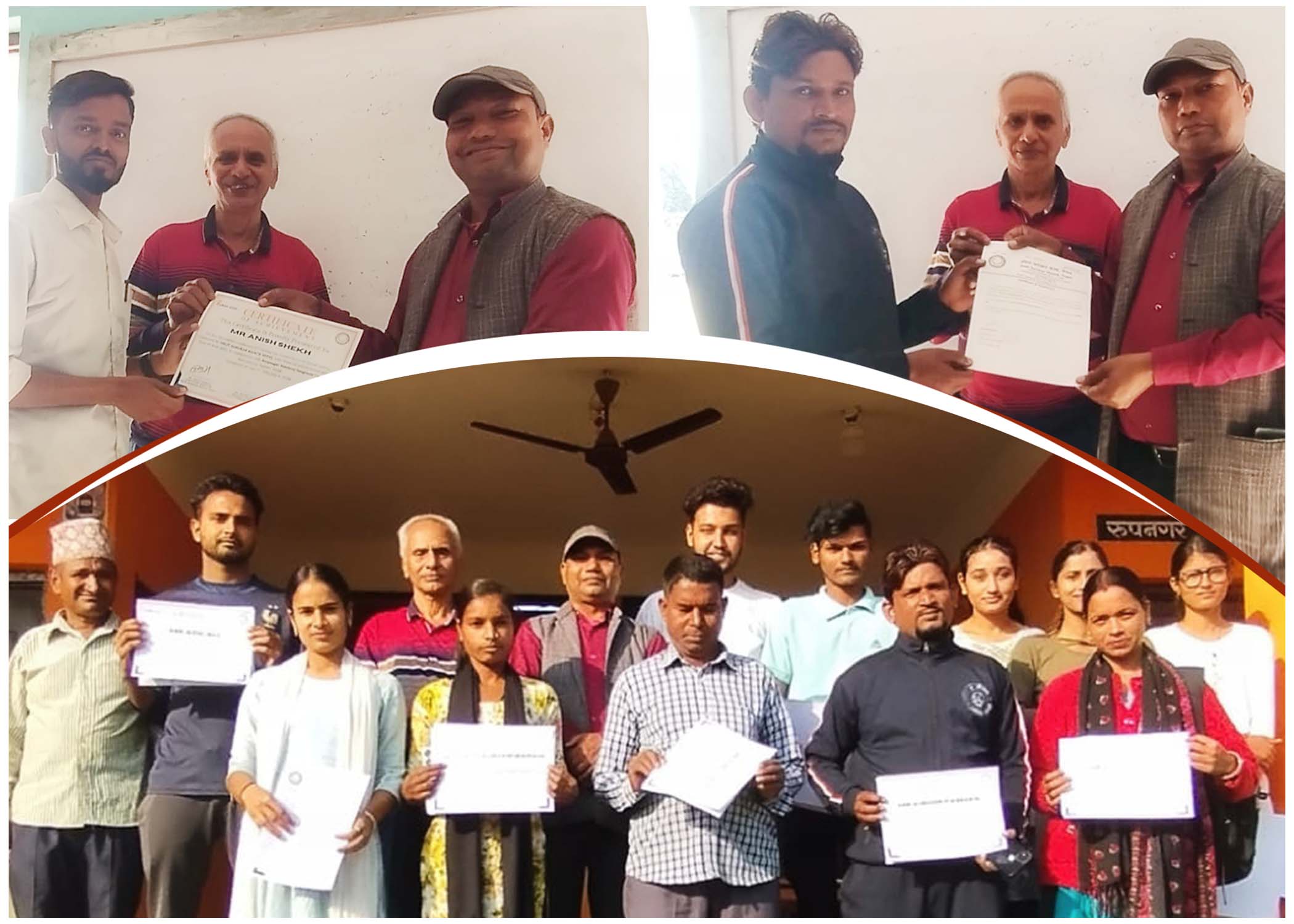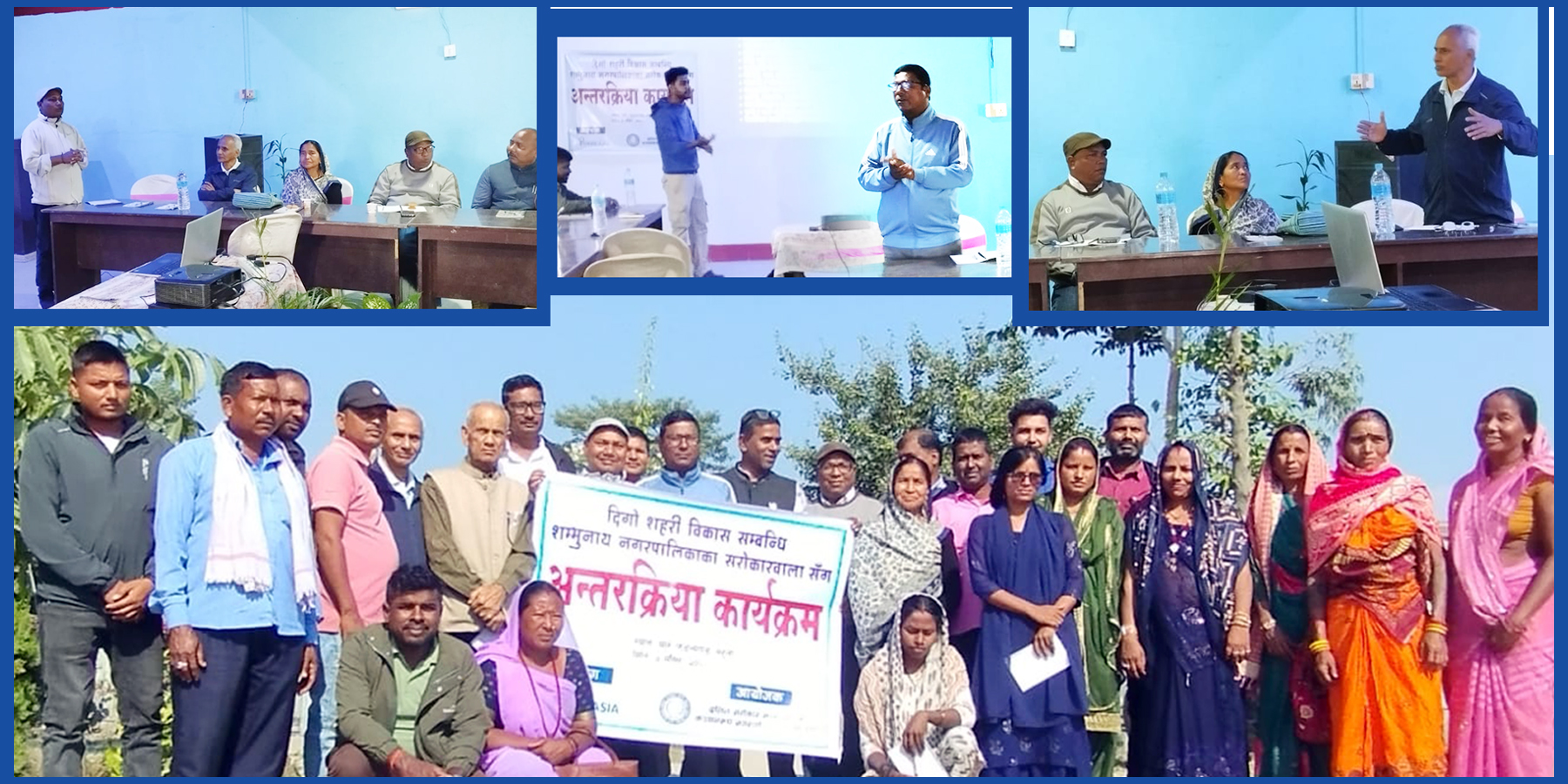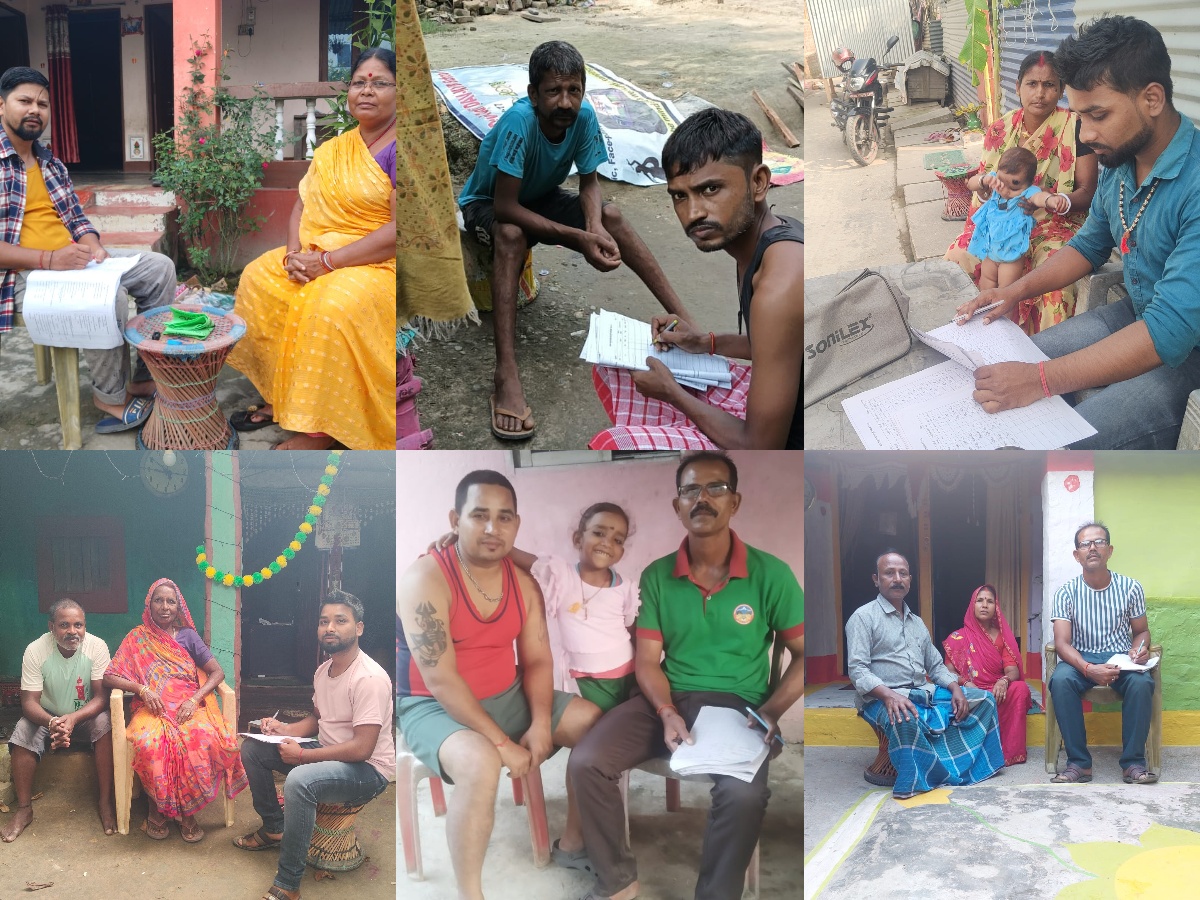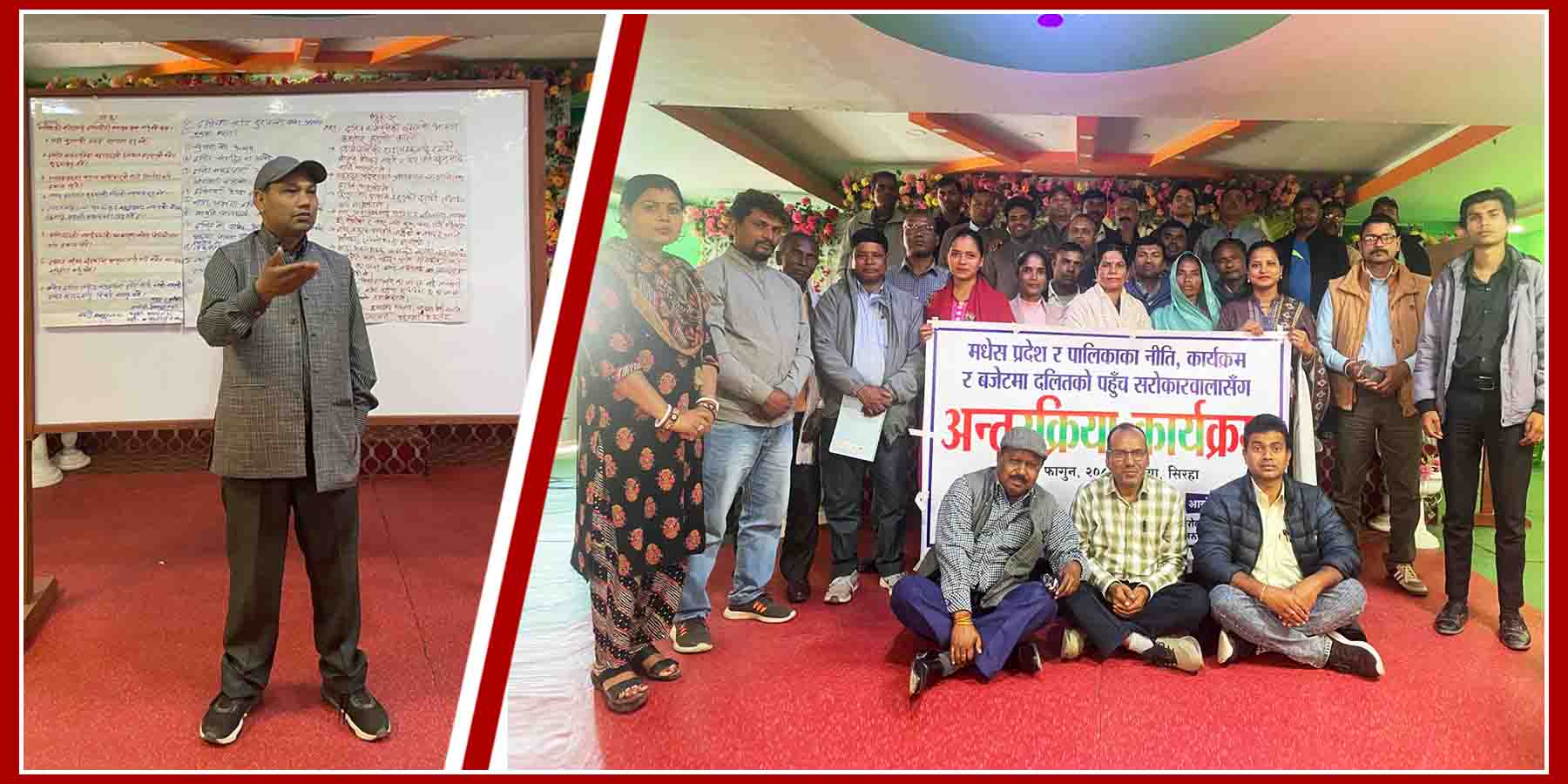
An interaction program with stakeholders on the access of Dalits to the policies, programs and budgets of municipalities in Madhesh Province.
- 2025/02/25
Mirchaiya, Siraha,
Despite Madhesh Province being the most populated region of Dalits, stakeholders have said that the budget here has not been Dalit-friendly. This is the reason, they claimed, that the condition of the Dalit community here is becoming more and more miserable. They said that the condition of this community has not improved due to the lack of attention in the budget to the education, health, livelihood and capacity building of the Dalit community in particular.
They expressed this view on the occasion of an interaction program with stakeholders on the access of Dalits to the policies, programs and budgets of municipalities in Madhesh Province. Most of the speakers at this program, including stakeholders from all 8 districts of Madhesh Province, claimed that even though the constitution itself states that all activities and resource allocations of the state should be distributed on an inclusive and proportional basis, the provincial government and municipalities here have failed to do so. They claimed that this would be confirmed even if the plans and budgets of the concerned municipalities are looked at.
The conclusions of a study conducted by Dalit Sarokar Manch Nepal, Saptari were presented at the program. Manish Koirala, the program coordinator of the Dalit Sarokar Manch Nepal, who was involved in the study on whether the budget of the provincial government and municipalities was Dalit-friendly, and journalist Raghunath Lamichhane, while presenting the findings of the study, stated that no municipality, with the exception of one, had allocated even 1 percent of its budget to Dalits. Since the Dalit community is about 17 percent in this province, the budget should be allocated in this way as mentioned in the constitution, but the study did not find such a result. The study, conducted from the perspective of whether the Dalit community directly benefited, includes 22 municipalities (rural municipalities and municipalities). Information was also given on the occasion that the study was based on the policies, plans and budgets of those municipalities for 4 fiscal years.
The participants had cited various reasons for this situation. They had identified the problem through group division and had also suggested solutions to it. The problems they pointed out included lack of harmony within the Dalit community, low number of Dalits in the executive, hence their voices not being heard, low priority given to the problems of the Dalit community by the municipal leadership, limited number of executive members not being able to present themselves effectively, weak awareness of their rights in this community, etc. Their joint statement was that these aspects should be improved and for that, first of all, all Dalits should unite.
Bhola Paswan, Executive Director of Dalit Sarokar Manch Nepal, said that the budget allocated for Dalits by not only the municipality but also the provincial government was shameful. Stating that the government is the implementer of the law, Paswan said, “DSMN has conducted a study to find out the difference between policy and practice and plan and budget.” He added, “Now, taking lessons from the findings of this study, Dalit community leaders, executive members and other stakeholders should pressure them to allocate a budget that will directly benefit their community. Otherwise, such a study will be meaningless.”
The program, which included executive members of various municipalities in all 8 districts of Madhesh Province, Dalit leaders and Dalit rights activists, was conducted at Hotel Holiday in Mirchaiya on February 23 and 24. The findings of this study, which included the situation of 22 municipalities, were presented to stakeholders in the 6 selected municipalities and suggestions were collected from them. Now, the study will be finalized and published by incorporating the suggestions from this program and such a report will be made available to all stakeholders including the provincial government, said Paswan, Executive Director of DSMN on the occasion.
Despite Madhesh Province being the most populated area of Dalits, stakeholders have said that the budget here has not been Dalit-friendly. This is the reason, they claimed, that the condition of the Dalit community here is becoming more and more miserable. They said that the condition of this community has not improved as the budget does not pay attention to the education, health, livelihood and capacity building of the Dalit community in particular.
They expressed this view during an interaction program with stakeholders on the policies, programs and access of Dalits to the budget of municipalities in Madhesh Province. Most of the speakers at the event, which included stakeholders from all eight districts of Madhesh Province, claimed that even though the constitution itself states that all state activities and resource allocation should be distributed on an inclusive and proportional basis, the provincial government and municipalities here have failed to do so. They claimed that this would be confirmed by looking at the plans and budgets of the respective municipalities.

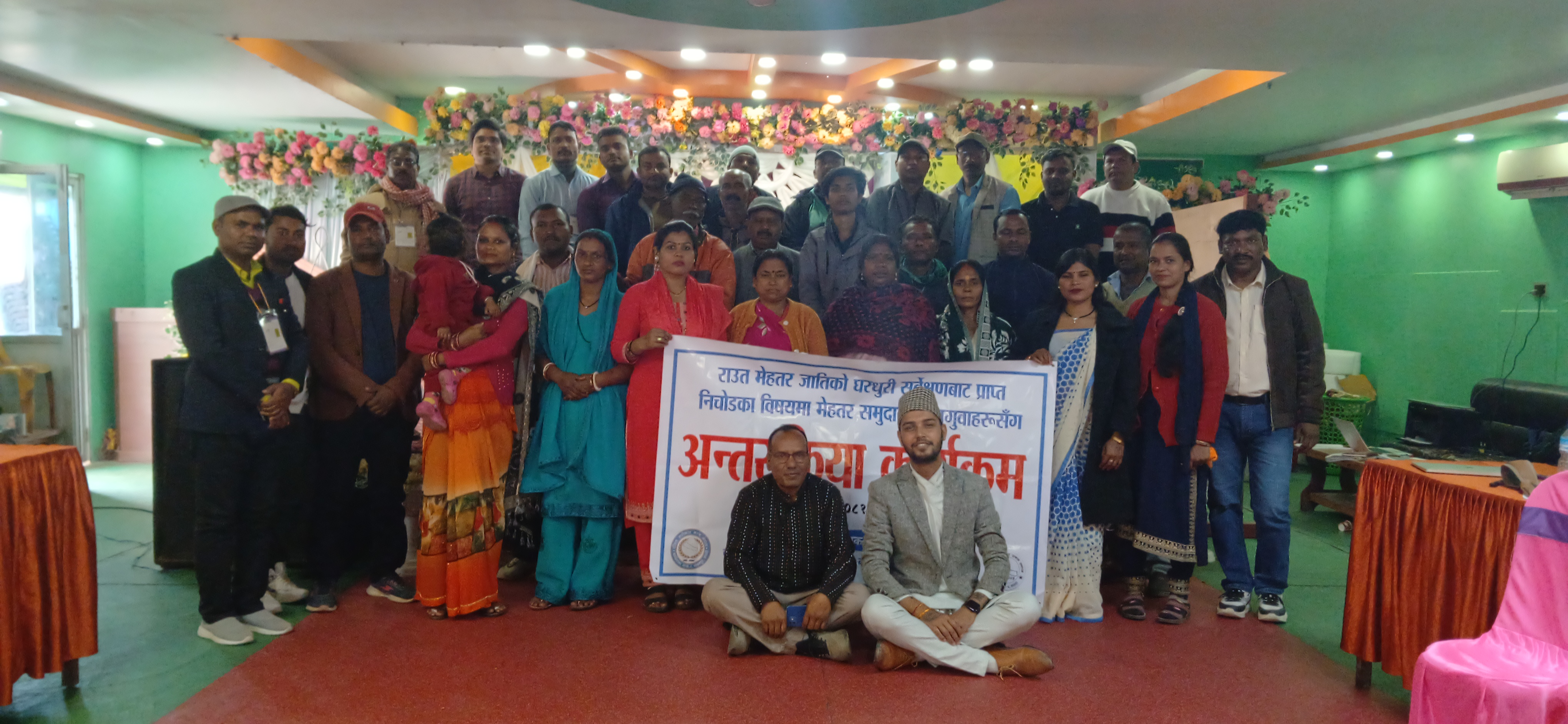

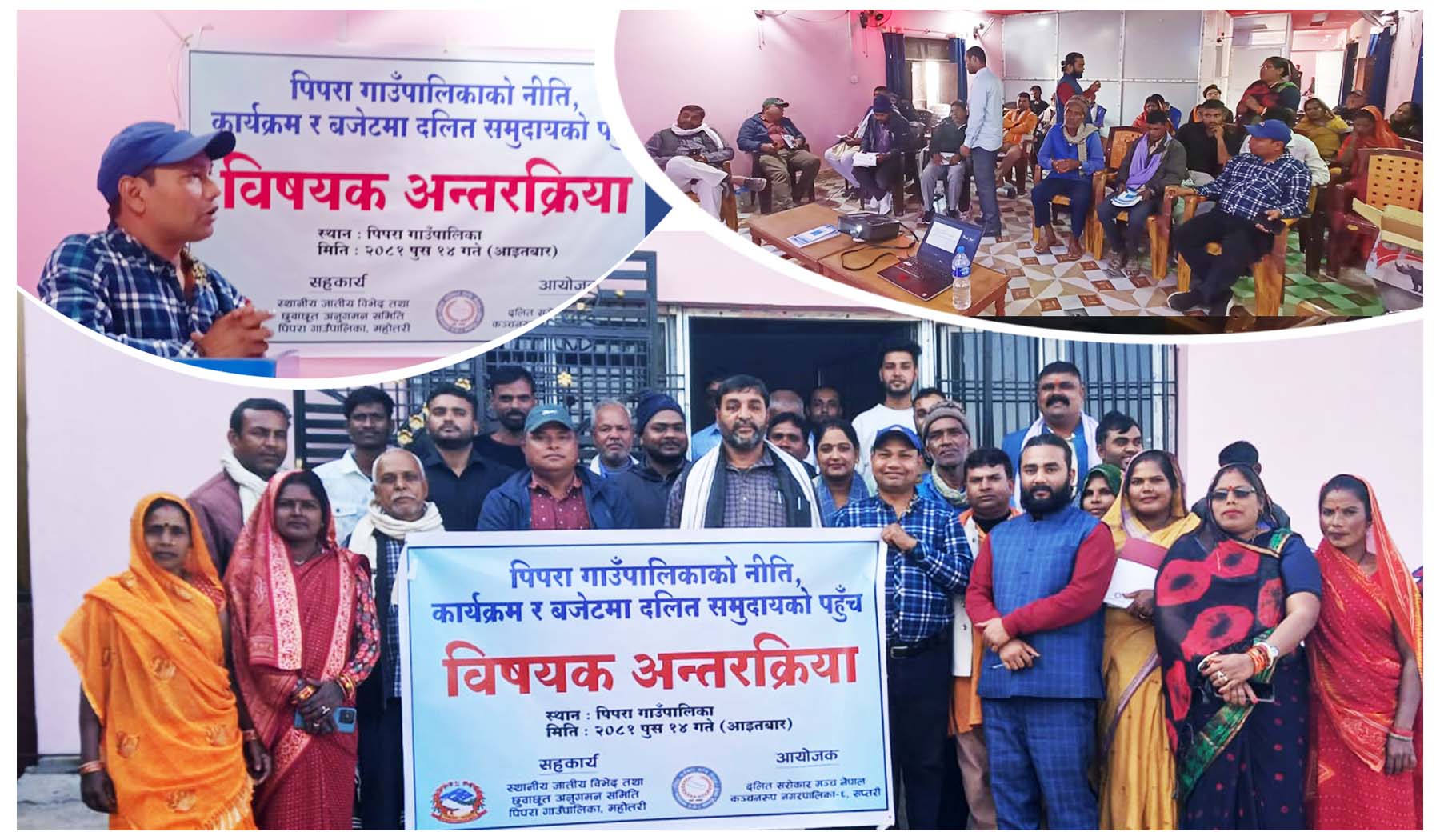
.jpeg)
